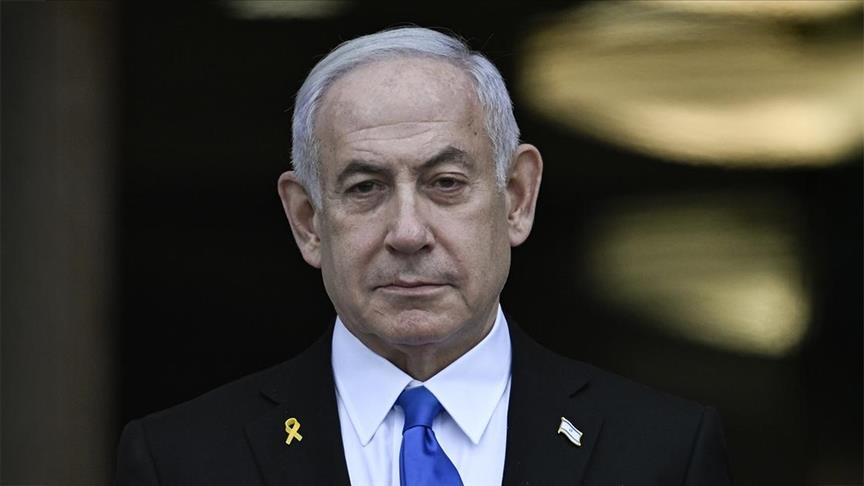Israeli prime minister under fire for revealing details of Lebanon mass pager explosions
Opposition leader Lapid accuses Netanyahu of jeopardizing intelligence of future operations ‘to make the headlines’

JERUSALEM / ISTANBUL
Israeli Prime Minister Benjamin Netanyahu came under fire from opposition leader Yair Lapid on Tuesday after he publicly revealed the details of a former pager attack on Lebanon.
In September 2024, Israel orchestrated a series of explosions involving wireless communication devices, including pagers and walkie-talkies used by the Hezbollah group, killing at least 51 people and injuring nearly 3,000 others.
“Netanyahu's talk about 'Operation Grim Beeper' is an unnecessary and irresponsible exposure of the Mossad's operational methods,” Lapid said on his official X account.
He accused the premier of “jeopardizing the intelligence of future operations in order to make the headlines.”
On Sunday, Netanyahu said that Israel accelerated its mass pager explosions by several weeks after it found out that some devices were being scanned in Iran.
“In the third week of September, we learned that Hezbollah had sent three pagers to Iran for scanning,” Netanyahu said at the Jewish News Syndicate (JNS) conference in Jerusalem.
“We launched the campaign in Lebanon three weeks earlier than planned,” he said.
According to Israeli Channel 12, Israeli security agencies “were astonished” by Netanyahu’s words, confirming that the information was considered top secret and known by only a few.
“Although the prime minister has the authority, the disclosure of sensitive information must be done in consultation with intelligence services,” the channel said, citing an unnamed security source.
A fragile ceasefire has been in place in Lebanon since November, ending months of cross-border warfare between Israel and Hezbollah, which escalated into a full-scale conflict in September.
Lebanese authorities have reported more than 2,766 Israeli violations of the truce, including the deaths of at least 195 people and injuries to 486 others.
Under the ceasefire deal, Israel was supposed to fully withdraw from southern Lebanon by Jan. 26, but the deadline was extended to Feb. 18 after Israel refused to comply. It still maintains a military presence at five border outposts.
Anadolu Agency website contains only a portion of the news stories offered to subscribers in the AA News Broadcasting System (HAS), and in summarized form. Please contact us for subscription options.







